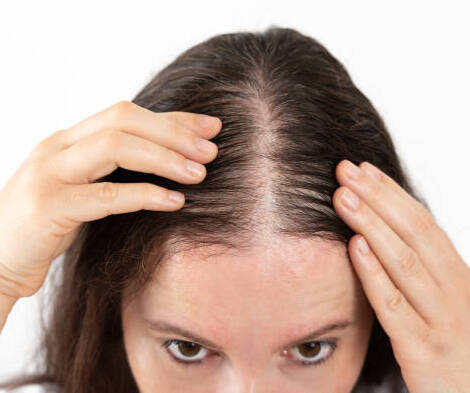
Hair loss, medically known as alopecia, is a widespread concern affecting individuals of all ages and genders. While several temporary solutions exist, the quest for a permanent treatment for hair loss in Islamabad has been ongoing.
In this comprehensive blog, we will delve into the current landscape of permanent treatments for hair loss, examining surgical and non-surgical options, their effectiveness, and the evolving landscape of regenerative medicine in combating this common condition.
Surgical Interventions:
Hair Transplantation:
Hair transplantation has emerged as a prominent surgical solution for permanent hair loss. The procedure involves relocating hair follicles from a donor site, typically the back or sides of the scalp, to the recipient site where hair is thinning or lost. Two primary techniques are employed in hair transplantation:
- FUT: This method involves the removal of a strip of scalp from the donor area, and the follicular units are dissected and implanted into the recipient site.
- FUE: In FUE, hair follicles are extracted directly from the donor site and transplanted to the balding area. This technique is less invasive and leaves minimal scarring.
Hair transplantation is considered a permanent solution as the transplanted hair is often genetically resistant to the hormone dihydrotestosterone (DHT), which is a primary factor in hair loss.
Scalp Micropigmentation (SMP):
Scalp micro pigmentation is a non-invasive cosmetic tattooing procedure that simulates the appearance of a closely cropped haircut or a shaved head. This technique involves the application of pigment to the scalp to create the illusion of hair follicles. While not a traditional hair restoration method, SMP provides a permanent solution for those seeking a shaved or closely cropped look.
Non-surgical Interventions:
Medications:
Several medications are approved to treat hair loss, with some demonstrating efficacy in preventing further hair loss and promoting hair regrowth. However, it’s essential to note that these medications require continuous use to maintain their effects.
- Finasteride: This oral medication inhibits the production of DHT, a hormone linked to hair loss. It is primarily prescribed for men and has effectively slowed hair loss and promoted regrowth.
- Minoxidil: A topical solution, minoxidil, is applied directly to the scalp. It is FDA-approved for both men and women and has demonstrated efficacy in promoting hair regrowth and preventing further loss.
While medications can effectively manage hair loss, their results may vary, and they do not offer a permanent solution.
Low-Level Laser Therapy (LLLT):
LLLT is a non-invasive treatment that uses low-level lasers or light-emitting diodes (LEDs) to stimulate hair follicles, promoting regrowth. While research on its effectiveness is ongoing, some studies suggest that LLLT can be a valuable adjunctive therapy for individuals experiencing hair loss.
Emerging Technologies and Therapies:
Platelet-Rich Plasma (PRP) Therapy:
PRP therapy involves extracting and concentrating a patient’s blood platelets, which are then injected into the scalp to stimulate hair follicles. The growth factors in the platelets are believed to encourage hair regrowth. While PRP shows promise, more research is needed to establish its long-term effectiveness.
Stem Cell Therapy:
Stem cell therapy is an evolving field in hair loss treatment. It involves the injection of stem cells, often derived from the patient’s adipose tissue, into the scalp to stimulate hair follicle regeneration. Early studies suggest potential benefits, but further research and clinical trials are necessary to validate its long-term efficacy and safety.
Do You Want To Know More?
In pursuing a permanent solution for hair loss at SKN Cosmetic Clinic Islamabad, various surgical and non-surgical interventions have been developed. Hair transplantation, scalp micro pigmentation, medications, and emerging technologies like PRP and stem cell therapy offer options for individuals seeking to address their hair loss concerns.
However, the effectiveness of these treatments can vary, and individual responses may differ. As research continues and new advancements emerge, the landscape of permanent hair loss solutions will likely evolve, providing hope for those seeking lasting relief from this common condition.



